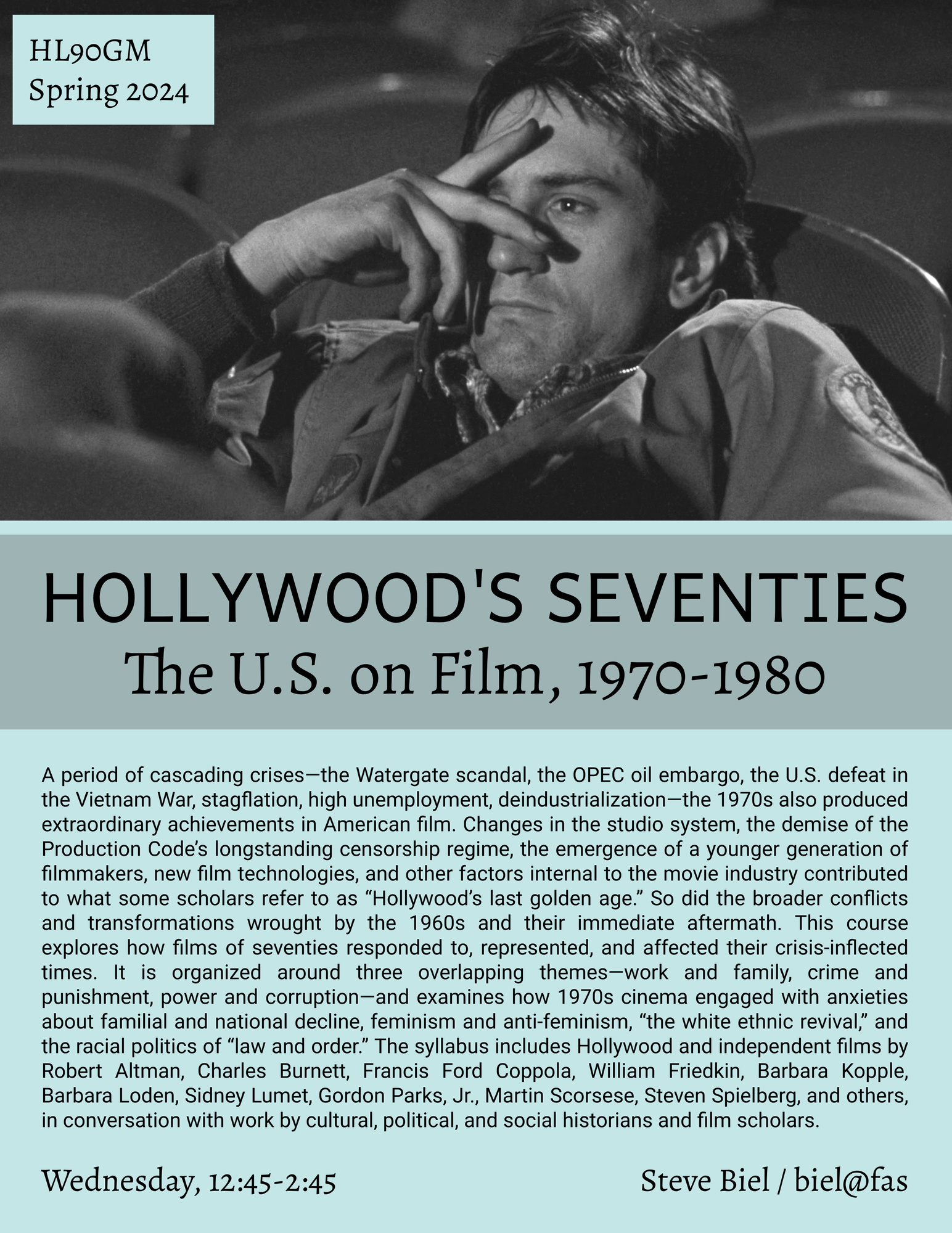Semester:
Offered:
Instructor: Steven Biel
Meeting time: Wednesday, 12:45-2:45 pm
 A period of cascading crises—the Watergate scandal, the OPEC oil embargo, the U.S. defeat in the Vietnam War, stagflation, high unemployment, deindustrialization—the 1970s also produced extraordinary achievements in American film. Changes in the studio system, the demise of the Production Code’s longstanding censorship regime, the emergence of a younger generation of filmmakers, new film technologies, and other factors internal to the movie industry contributed to what some scholars refer to as “Hollywood’s last golden age.” So did the broader conflicts and transformations wrought by the 1960s and their immediate aftermath. This course explores how films of seventies responded to, represented, and affected their crisis-inflected times. It is organized around three overlapping themes—work and family, crime and punishment, power and corruption—and examines how 1970s cinema engaged with anxieties about familial and national decline, feminism and anti-feminism, “the white ethnic revival,” and the racial politics of “law and order.” The syllabus includes Hollywood and independent films by Robert Altman, Charles Burnett, Francis Ford Coppola, William Friedkin, Barbara Kopple, Barbara Loden, Sidney Lumet, Gordon Parks, Jr., Martin Scorsese, Steven Spielberg, and others, in conversation with work by cultural, political, and social historians and film scholars.
A period of cascading crises—the Watergate scandal, the OPEC oil embargo, the U.S. defeat in the Vietnam War, stagflation, high unemployment, deindustrialization—the 1970s also produced extraordinary achievements in American film. Changes in the studio system, the demise of the Production Code’s longstanding censorship regime, the emergence of a younger generation of filmmakers, new film technologies, and other factors internal to the movie industry contributed to what some scholars refer to as “Hollywood’s last golden age.” So did the broader conflicts and transformations wrought by the 1960s and their immediate aftermath. This course explores how films of seventies responded to, represented, and affected their crisis-inflected times. It is organized around three overlapping themes—work and family, crime and punishment, power and corruption—and examines how 1970s cinema engaged with anxieties about familial and national decline, feminism and anti-feminism, “the white ethnic revival,” and the racial politics of “law and order.” The syllabus includes Hollywood and independent films by Robert Altman, Charles Burnett, Francis Ford Coppola, William Friedkin, Barbara Kopple, Barbara Loden, Sidney Lumet, Gordon Parks, Jr., Martin Scorsese, Steven Spielberg, and others, in conversation with work by cultural, political, and social historians and film scholars.
